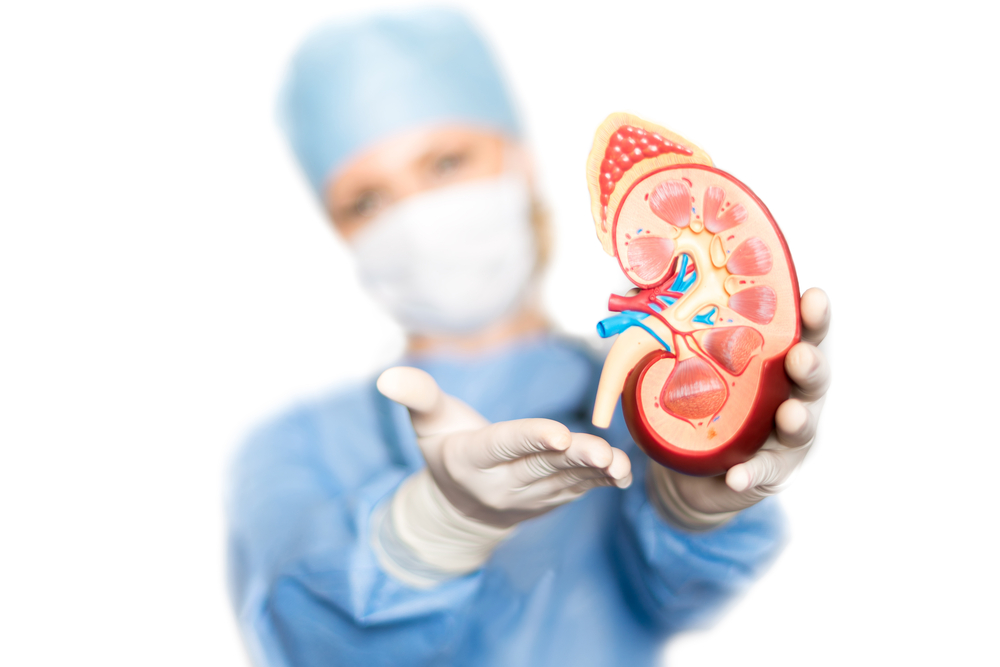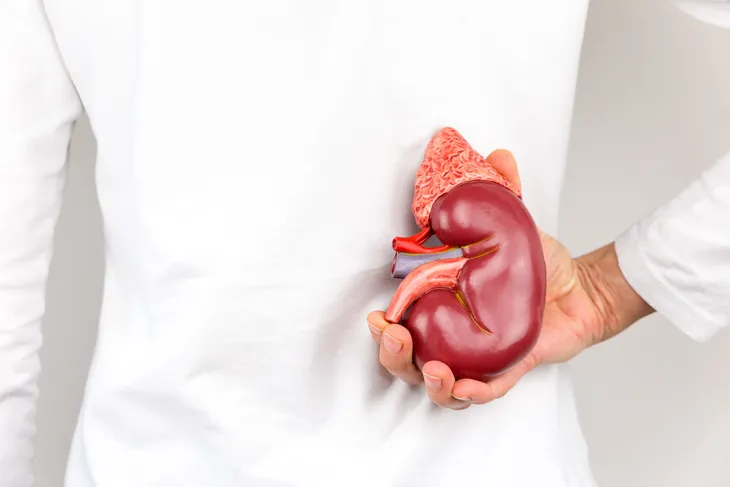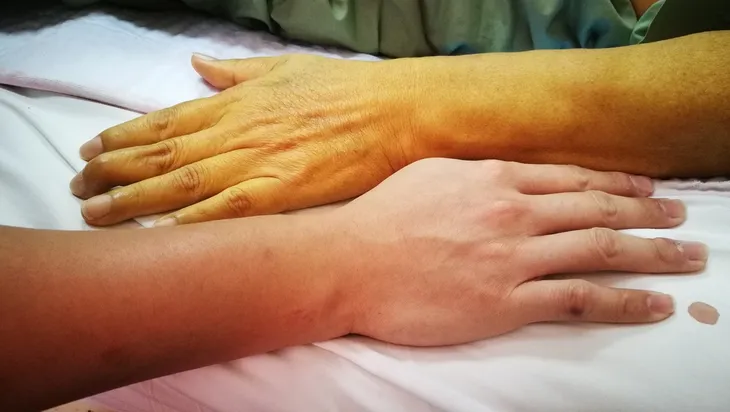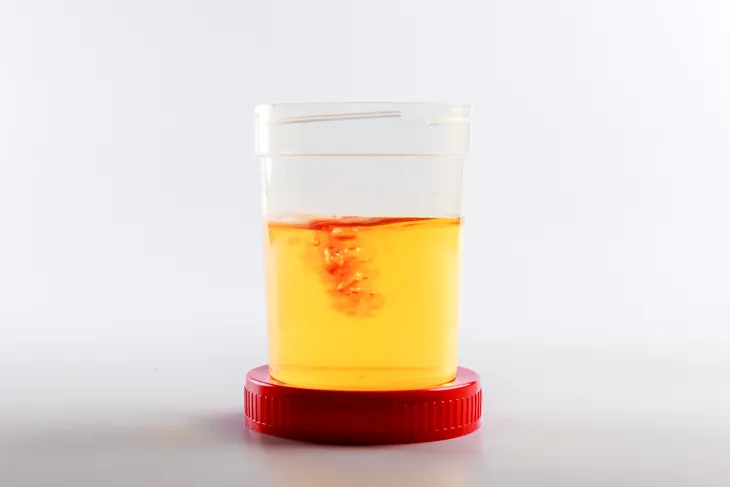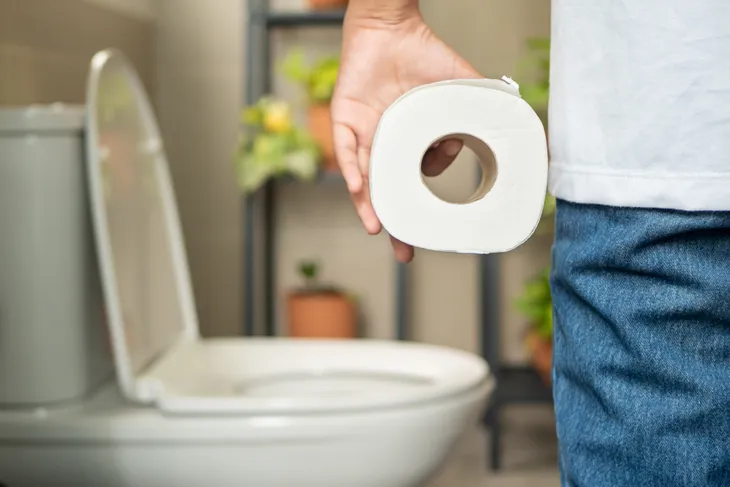A nasty and uncomfortable kidney infection results when bacteria enter via the bladder and ascend to invade one or both kidneys. A kidney infection, medically known as pyelonephritis, won’t cause serious kidney damage if treated early.
Here are the 11 most telling signs that you’ve fallen victim to a kidney infection…
1. Kidney Pain
Pain and discomfort on the side of the affected kidney is common with a kidney infection. You may also feel a dull pain in your lower back as well as in the genital area. Obviously, every patient with a kidney infection feels different degrees of pain (in fact, some have zero pain) and different symptoms.
However, severe pain is common with a kidney infection with many patients complaining of radiating pain in their sides and backs, just below the ribs where the kidneys sit. Many also complain of pain that moves about or travels from the lower abdomen into the back, even in the groin. Typically, the pain is radiating, which means it fluctuates in waves of sharp pain followed by throbbing pain and tenderness.
2. Chills and Fever
With any infection, a fever can occur with temperatures soaring above 100-degrees Fahrenheit, accompanied by chills—so grab a blanket and warm up. A kidney infection is caused by an overgrowth production of bacteria in the organ. As bacteria attach themselves to the walls of the kidneys, symptoms will flare up, including fever.
Oftentimes patients don’t experience fever and chills until the kidney infection is present for some time. If left untreated, a kidney infection will cause a mild to high fever accompanied by telltale chills. If you experience a sudden and unexplained fever, please see a doctor immediately.
3. Fatigue
Lack of energy is also common with a kidney infection, with the patient often feeling so weak or zapped of energy that all they want to do is sleep. Rest is needed for the body to fight off the infection.
4. Urinary Urgency
If your kidney infection worsens, you will often feel the constant and sudden urge to urinate, even if you just emptied your bladder. You may feel like you can’t quite empty your bladder and feel like there is fluid remaining, even right after using the washroom. Your urine can also have a foul smell and appear cloudy as the infection worsens.
This overwhelming persistent urge to urinate is often one of the first signs of a kidney infection. The urge to go can be accompanied by pressure or heaviness in the lower abdomen as well as a dull, throbbing pain. However, keep in mind that this feeling of urinary urgency is not only characteristic of urinary tract infections (UTIs) but also of kidney stones.
5. Nausea
Mild nausea and even vomiting may cause victims of kidney infections to suffer from loss of appetite, fatigue, and weight loss due to lack of nourishment. You may also feel nauseated due to dehydration, which is a common result as the body tries to flush bacteria from the body with increased urinary frequency.
You may feel so nauseated from the kidney infection that you become sick to your stomach. The nausea and stomach upset can occur for a few reasons. For instance, you may feel nauseated due to the pain and pressure on your abdomen from the infection. Nausea and vomiting can also occur due to improperly functioning kidneys. Keep in mind that the kidneys are responsible for toxin elimination, which means vomiting may occur to purge waste products from the body if the kidneys aren’t working fast enough.
6. Jaundice
Many children with kidney infections that are not treated right away end up with jaundice, which is yellowing of the skin that’s particularly evident in the whites of the eyes. Jaundice can occur when the blood contains an excess of bilirubin, a pigment that is produced naturally when red blood cells are broken down and excreted through bile.
Interestingly, bile is actually green in color; however, when it reacts with bacteria in the large bowel, bilirubin takes on a dark brown or dark yellow color. Jaundice most typically occurs when the liver (the body’s main elimination route) is faulty. However, jaundice can also occur when waste products aren’t excreted properly via the urine, which is the responsibility of the kidneys.
7. Flu-Like Malaise
Feeling sick, as if you have the flu, is very common to those suffering from a kidney infection. So, it’s easy to brush it off as routine malaise if you have a fever, headache, nausea, and muscle aches that you would experience with a stomach bug or the flu. However, these telltale symptoms are also common with UTIs, which are bacterial infections that can strike any portion of your urinary tract (i.e., the bladder, kidneys, ureters, and/or urethra).
A UTI can easily become a kidney infection when bacteria invade the urethra, multiply, and move onward to the bladder (this is called cystitis). If a UTI isn’t properly treated, bacteria can continue to multiply, traveling up the ureters, and eventually setting up shop in the kidneys. A doctor typically refers to a kidney infection as pyelonephritis, which can spread to the bloodstream, causing severe illness throughout the body. Luckily, pyelonephritis is typically remedied with antibiotics.
8. Blood in Urine
Those with a severe kidney infection often go to the doctor complaining of pus or tinges of blood in the urine. When red blood cells are evident in the urine, the condition is referred to as hematuria. Hematuria can occur when a UTI spreads from the urethra and bladder (the lower urinary system) to the ureters and kidneys (the upper urinary system). A severe kidney infection is referred to as pyelonephritis at this point.
Blood can appear in the urine when kidney function is disturbed. Healthy kidneys work to filter the blood and toxins. The elimination of toxins is effective when the kidneys produce urine to eliminate waste from the body. If blood is not filtered properly en route from the kidneys down to the bladder, urine can appear blood tinged or cloudy with blood.
9. Flank Pain
With a kidney infection, a patient can often experience a dull pain that comes and goes in the flank (the fleshy area between the ribs and hip) and lower back on the side close to where the affected kidney is located. Flank pain is characterized by pressure, throbbing pain, or discomfort in the side, upper abdomen, or back, just underneath the ribs and above the pelvis. Typically, kidney flank pain will present more severely on one side of the body.
Sudden and chronic flank pain may be caused by a serious medical condition (i.e., UTI or a kidney infection). If severe flank pain occurs suddenly it can also be the result of painful kidney stones or another kidney problem. If you experience chronic flank pain, don’t take a pain reliever and go to sleep — make an appointment with your doctor immediately!
10. Diarrhea
In addition to battling with nausea and vomiting, a kidney infection may also cause you to experience gastrointestinal issues, such as diarrhea—where bowel movements become loose and watery.
Of the two main types of diarrhea, acute and chronic, the type that affects people with kidney infections is acute diarrhea, which occurs as a response to the bacterial infection and typically lasts for a few days. If it persists for longer than a few days, be sure to make an appointment with your doctor, as frequent fluid loss through diarrhea can lead to dehydration.
11. Mental Confusion
A kidney infection may also cause you to experience mental confusion or disorientation. This is an especially common symptom in elderly people. In fact, in many cases, confusion may be the only symptom of a kidney infection that elderly individuals exhibit.
As a result, doctors often misdiagnose it as natural memory loss that is common with aging or even an early indicator of dementia or Alzheimer’s disease. Confusion and disorientation aren’t the only mental symptoms that can occur with kidney infections; you may also feel dizzy, irritable, or struggle with a loss of balance.
